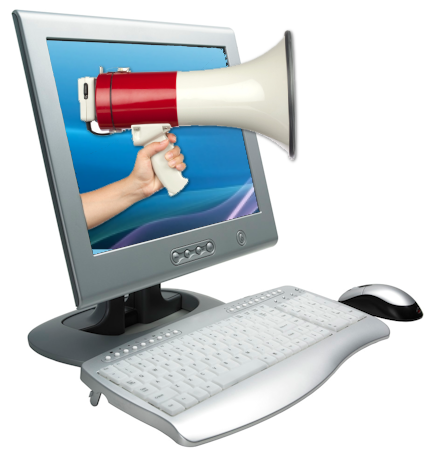 However, not every website builder is "too good to be true" and not every single small business needs a professional developer to have a good site. There are pros and cons to both ways of getting a website put together. What I want to outline here are some considerations that should be taken into account when entrepreneurs decide how to go about website development.
However, not every website builder is "too good to be true" and not every single small business needs a professional developer to have a good site. There are pros and cons to both ways of getting a website put together. What I want to outline here are some considerations that should be taken into account when entrepreneurs decide how to go about website development.- Learning Curve
While the site builders are typically easy to use, it does take some time getting used to them and even learning the terminology and navigation of working within their systems. There are many drag-and-drop features but learning how they work within the builder can be time consuming. On top of that, content creation and layout considerations take more time. There is a learning curve even for the technically savvy.
Using a professional developer eliminates that learning curve. They manage the complete process of the design and implementation of website development. A good developer also helps guide and educate about content creation and good usability for the design. That allows the entrepreneur to concentrate on their business. - Short-term and Long-term Flexibility
Any site builder has limitations as far as customizing and even hosting. Free and low cost development tools typically offer a set number of templates and while they can be customized to some extent, knowing how to make the most of those designing options takes considerable time to figure out. And once the site is developed, it is tied to that site builder and it's template. Change hosts or want to move to another builder, design and content creation have to start from scratch.
A professional has the skills and knowledge to be able to design the look and function of exactly what is wanted. They can build the site on any platform to make it easy to scale as well as flexible for future changes in hosting or design. - Design
Drag and drop builders have come a long way in helping people make attractive sites. However, good design isn't just about aesthetics - usability is a major factor. If the site looks good but the navigation doesn't make sense or the overall layout does not draw on design best practices, the site won't perform well with visitors.
A professional web designer knows the best practices for site layout, to not only make the site attractive but functional. If a site doesn't provide a good experience for visitors, they won't stay/interact/buy/contact. And ultimately, that's the point of building a website - visitor action! - SEO and Content Know-how
This is probably the biggest difference and what should be the major consideration for entrepreneurs building a website. Knowing the most up to date methods for effective search engine optimization (SEO) and how to craft compelling content is not something that can be researched and understood overnight. Site builders offer suggestions and provide apps, add-ons and tools but again, knowing how to use them requires time and research. Business owners can't expect a website to do well in search engines just because it looks good or because they have an added tool in their builder proclaiming "optimization."
Effective search engine results and content creation is one of the specialties of good website developers. They know the technical requirements as well as the standards for making the most of every element, graphic, line of code and bit of text. And without SEO and compelling content, a website it just a shrimp in the ocean of over 1 billion websites worldwide (www.internetlivestats.com), without much of a chance of being found by the target audience. A professional designer uses their expertise to put a website in front of the people and businesses most likely to respond and take action.
As Richard Branson said, "If you really want to grow as an entrepreneur, you've got to learn to delegate." By considering the real differences between do-it-yourself websites and professional development, most business owners will see the benefit in delegating that task to a professional. And that allows them to concentrate on why they're in business in the first place - to develop their company into a growing, thriving organization.


